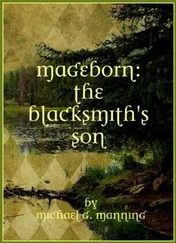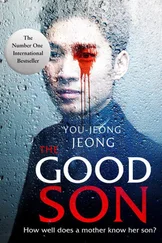When she returns to consciousness she is back in the cellar. The trapdoor is open and the guard is about to climb the ladder.
“Wait,” she calls out. “Give me water, for the love of God.”
He pauses, not looking at her. “There is water in the plastic.”
She looks around and sees a ten-liter plastic jerrican on the floor. There is a cloth nearby wrapped around some loaves of naan. He starts to climb.
“Wait,” she says again. “Tell me your name and lineage.”
“So you can curse me?” he says, climbing higher. “I can’t be caught that way, witch.”
“I am not a witch. Please, because if I am beaten like this five times a day I will be dead in two days, and when the Day of Judgment comes and you are being cast down to Hell, I want to say to God the merciful, the compassionate, ‘My Lord, You know all things and You know that this Yousef Muhammad, or whatever you are called, has murdered me against Your law, with his whip, but it was not his fault; he is ignorant and was betrayed by the wicked, who kill falsely in Your name, so in Your mercy let him inhabit the cooler parts of Hell and do not place his murderer’s hands forever in molten lead.’ ”
The man snarls a curse. Sonia says, “Very well. But I would rather have my back than your dreams to come. I wish you peace, man with no name, but I doubt you will have any. Beware the Day of Judgment.”
The man makes a gesture, an averting sign against the evil eye, and scrambles up the ladder with unusual speed. The trapdoor closes again.
Sonia drinks from the jerrican, groaning as she lifts it to her mouth. She carefully removes her tunic, an agonizing process, and pours water down her back, writhing as the cool liquid washes her cuts. She sees that the whip has sliced the back of the tunic into ribbons. She wraps her dupatta around her and collapses back onto the earth, lying on her right side. The fleas feast at will, but now she barely notices them against the wrenching agony of the wounds across her back.
She falls into a paradoxical state, not quite conscious yet too fitful to be called sleep. The pain is like a drug, squeezing her mind into unaccustomed hypnagogic regions. Is that her life passing before her eyes, is this death? No, or not yet, at any rate, but she experiences a series of intense sensory impressions. Her mother, the gleam of a gas lantern making a golden halo behind her head; the smells-gas; her mother’s smell: perfumed powder, the smell of greasepaint and cold cream; the stink of the great cats, of the grease from the concession stands, of cotton candy, the cigarette smell of her father-the woman in her dream, the spangled costume, a mother image? No, her mother had dark hair, Sonia sees the woman clearly now, a stranger yet familiar, maybe not a woman at all, some kind of androgyne, an angel or demon. It is an animus, she decides, the representation of the Logos in the female, as the anima is the representation of Eros in the male. In its negative aspect it is opinionated, conventional, banal, self-righteous, argumentative, the caricature of the gabbling woman that is the dead spirit of the father rising to hideous life in her. In its positive aspect, it conveys spirit, feistiness, the capacity for reflection and self-knowledge, the capacity to handle philosophical and religious ideas at the higher levels.
Sonia hears herself laughing; the laughter rises to a hysterical pitch, breaks down into sobbing. Yes, part of her is saying, You are doing Jung -ian analysis in this stinking pit; what good has it ever done you? Are you cured? Are you happy?
This is the animus speaking; it has never been integrated. Fluss said it and it was true, and how she had fought him on the subject. Of course, she argued, that is what the disintegrated animus does, it bitches. But this dream is important, she knows that; and now in this fevered state she struggles to make sense of it. The awful boy-thing from that dream floats into her mind. The crusher of tiny helpless creatures. She thinks of Farid, her husband, whom she has tortured, whom she has crushed. The boy-thing cannot be Farid, who has never hurt anything in his life; that’s his problem: He has no edge, his anima is toxic, inert, Eros and its holy power does not flow from him, poor man. The Mother is too strong, Noor has done her work well, all unconscious, of course, all of them are asleep, and she thinks of the sons of Noor, classic examples of the three main types of animus-ridden men: Farid, the softy; Nisar, the voracious mogul and philanderer; Seyd, the fascist.
She holds the monstrous boy in her mind’s eye, he floats in the dark sparkles under her eyelids, and as she watches he changes; he grows tall, strong, beautiful: her son. She feels a pang of love. She calls out to him; he smiles at her and begins a careful kind of stepping, almost like a dance, and she sees that he is crushing under his feet the small helpless creatures from her dream, tiny birds or squirrels. She calls again, suddenly panicked; this is not right. She calls out, Theo, don’t! This is not how you were raised! And he smiles again, the flash of white teeth in a tanned face. It is not Theo at all but Wazir, and now she sees that the deformed boy is still there, crouching in the shadows; he has Theo’s face. Wazir speaks; he says, I’m just doing what you taught me. And she has taught him, nurturing him over the years; she’s spent more time with him as an adult than ever she spent with Theo after he was grown. As this thought enters her mind, and with it a profound sorrow and regret, her deformed son leaps at her, wraps his arms about her waist. She calls on him to stop, she says he’s hurting her, but he does not stop; he is climbing up her back, he is pinching her, he is clawing at her back with his nails. Wazir does nothing to stop this; he seems amused. The pain is horrendous, she writhes with it. At some level she understands this is a just punishment for what she has done.
Then she is out of the dreamlike state; she is back in the stable, and her back is covered with rats, their sharp teeth tearing at her open wounds.
She rises with a scream and the rats fall off her and vanish into the straw. She knows they will return, attracted by the smell of her blood. She wedges herself into a corner and sits trembling in terror, with her penlight in her hand. Its little beam wavers, grows yellow, fades to a tiny glow.
Sonia is still in this position when the trapdoor opens again, revealing a figure holding an oil lamp. She lets out a sob. It cannot be time for dawn prayer already, time for her next beating; it is still black outside. Then she sees it is not her guard but the girl, Rashida. She has not covered her face for once, and Sonia can see that she has a nose after all, and that she is a beauty.
The girls clucks when she sees that the naan has not been eaten, that it has been gnawed by the rats. She says, “I have brought you a new kameez. Here, let me help you put it on.”
“No, it is too painful to have anything next to my skin. And besides, they will only tear it again, and you are not rich enough to afford five new ones a day.”
“But they are saying you will not be beaten in this way anymore. The mullah says it is immodest for men to see your body through the rips in the cloth. So, God willing, they will beat you on your feet.”
“Thanks be to God,” says Sonia. “I will be a cripple, but not shamed.”
The girl does not detect any irony in this statement, and says, “Yes, thank God. I have some grease my mother gave me. We put it on burns. I will dress your back. I also have some cloths that my mother says will keep the cuts from turning bad.”
“Thank you. God will reward you for this mercy.”
Rashida rubs grease on Sonia’s back with a delicate hand and ties on the cloths. The pain seems to diminish a little. The girl helps her on with the new kameez and says, “Is it true that you cast the evil eye on Mahmoud Saiyed?”
Читать дальше












